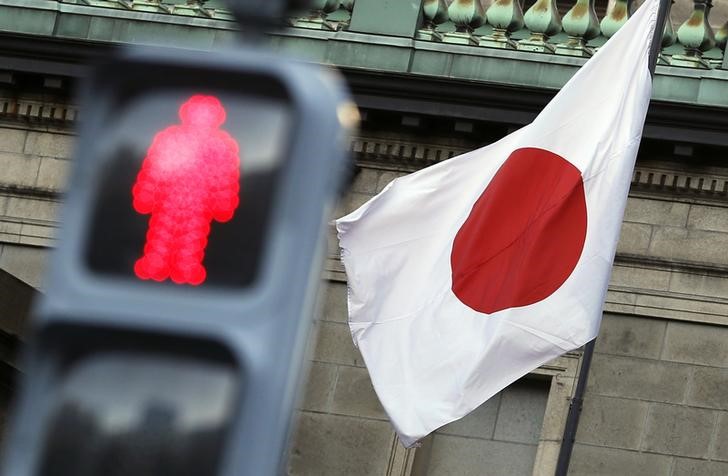Japan business activity shrinks in Nov on manufacturing slowdown- PMI
2022.11.23 20:24
[ad_1]

© Reuters.
By Ambar Warrick
Investing.com– Japanese business activity shrank in November, data showed on Thursday, as high inflation, a depreciating yen and dwindling overseas demand weighed heavily on local manufacturers, while the services sector came close to contraction territory.
The au Jibun Bank’s flash composite output purchasing managers index (PMI) fell to 48.9 in November from 51.8 in the prior month, contracting for the first time in three months.
The weak reading was driven largely by an unexpected drop in Japan’s to 49.4- its first contraction since January 2021. Analysts were expecting a reading of 50.9, with a level above 50 indicating expansion.
Japan’s fell to 50.0 in November from 53.2 in the prior month, indicating that service sector activity remained static in November.
The reading comes as Japanese firms struggle with surging raw material and production costs, driven largely by rising inflation in the country. surged to a 40-year high in October, data showed last month, as a weakening yen pushed up the cost of commodity imports.
“Central to the latest downturn was a poor performance at Japanese manufacturing firms. Cooling demand conditions and acute inflationary pressures reportedly continued to hamper output and new orders,” said Laura Denman, Economist at S&P Global (NYSE:) Market Intelligence, which compiles the PMI data.
“Manufacturing firms also seem to be increasingly wary about their future as indicated by a drop in business sentiment which put the index at its lowest level since May.”
The services sector stagnated despite increasing inflows of new business for a third consecutive month, as some parts of the economy benefited from resurgent tourism and a lifting of COVID-related restrictions.
Still, input prices appeared to be easing slightly from historical highs, while the outlook for future output remained in positive territory.
The showed little reaction to the data, trading up 0.3% at around 139, as it benefited from a weaker dollar.
unexpectedly shrank in the third quarter, as local businesses and consumers struggled to navigate rising price pressures. A bulk of these pressures also come from the reluctance to tighten monetary policy, having maintained ultra-low interest rates for the better part of a decade.
[ad_2]
Source link








